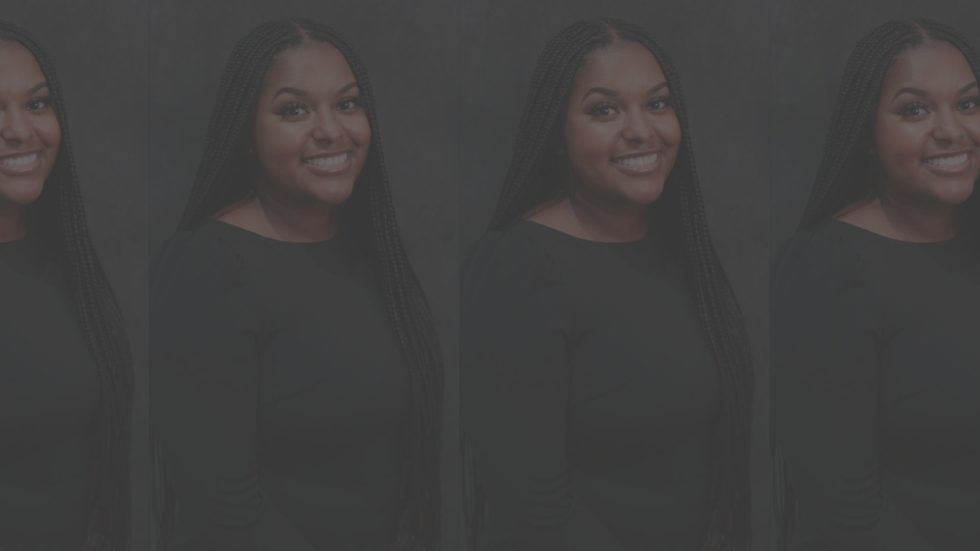
Medicine is a language of its own. When we hear doctors speak to one another, it’s like a foreign language that we are eager to understand.
Indeed, the language of medicine is one of deep understanding. Each of the various prefixes and suffixes of a medical term can come together to create a unique and beautiful meaning. I realized during my first year of high school in my medical terminology class that it takes a special type of individual to understand this language and utilize it to serve others. My interest in medicine reached its peak when I became a Pharmacy Technician at the age of 18: it was through this job that I truly began to understand the applicability of what I had learned in the class. I carried this interest into my undergraduate years as a pre-med student at Xavier University of Louisiana, a historically Black university (HBCU).
Without a doubt, my undergraduate years were filled with unforgettable memories and many challenges. I grew up in the large metropolitan city of Houston, Texas and went on to the smaller city of New Orleans for college. It was definitely an adjustment to small city life, but it was wonderful to get a fresh start. None of my friends from high school went to college with me, so it forced me to step out of my comfort zone to meet new people: that in and of itself was a blessing, because of the wonderful relationships and friendships I made.
However, my first year in college was quite challenging as I learned how to adjust to the rigor of my coursework: though high school had its difficulties, it was nothing compared to college. I was a Biology major and Chemistry minor, and I had to take a plethora of dreaded foundation courses. My university did not allow first-year students to make their own schedules in the first semester, so I was bound to 8 am classes, three days a week, and 16 credit hours for the semester. Let’s just say that high school 8 ams and college 8 ams are completely different! My first semester was a challenging adjustment as I balanced academics, student leadership roles, and my social life. However, I had adjusted to college life by my second semester of freshman year, which was a lot smoother than the first .
I ended that semester with a 4.0 GPA and actively involved myself with chemistry research in addition to my classes and extracurriculars. At the end of my first year, I had the wonderful opportunity to conduct research for my chemistry professor on Fentanyl detection, and I had the honor of presenting my work at the Emerging Researchers National Conference nearing the end of my sophomore year.
Despite the positive experiences I had that year in my research position, I faced belittlement and criticism from my research advisor. Though I did research at an HBCU, I was the only Black individual on the team. As my presentation for the national conference approached, my research advisor constantly insisted that I should not present my work, because I was “not as knowledgeable on the topic as the others.” Every member of the group was at the conference and was encouraged to attend, while I was discouraged and belittled. I felt blatantly disrespected, and I chose to disregard his ignorance by opting to travel and showcase my work in Washington, DC. I maintained my confidence and presented to multiple judges, who were intrigued by the information in my presentation. Furthermore, I was awarded third place nationally for my work, and I was the only student in my group to place. And when I informed my advisor of my achievement, he was utterly surprised and did not bother congratulating me.
Undoubtedly, I was proud of myself and would not let his ignorance cloud my achievement. This experience taught me that as a Black woman, this is my unfortunate reality. However, it motivated me to continue into the field of medicine, because this is also the unfortunate reality of other Black women. I want to join the generation of doctors that are diversifying medicine and addressing the health disparities faced by Black patients.
Academically, my junior year was among the most challenging for me. I made a horrible mistake my first semester by simultaneously taking Physics, Biochemistry, and Genetics, which took a detrimental turn on both my mental health and my GPA. On top of everything else, I was also studying for the MCAT this year, which made it so much more challenging. The spring semester of my junior year was when I was advised by many to start studying for the MCAT, but it was much easier said than done, considering I still had to study for my pre-med coursework. While studying, I was lonely and didn’t feel like I had anyone to talk to about the rigorous journey. I was able to redeem myself the following semester, but studying for the MCAT became another challenge that my mind was not ready for.
During my MCAT studying, I created a Tik Tok page to document my journey while studying as a way to keep myself motivated. This was one of the best decisions I have ever made, because I realized that there was a large pre-med community out there, going through the same thing. I had many other pre-med students reach out to me, saying how my content and advice kept them motivated, which truly made the journey worthwhile.
Over the summer, I rescheduled my MCAT multiple times, because I simply did not feel ready. Though I studied for months, I felt like I saw little improvement in my score. I eventually put my nerves to rest and developed the courage to finally take it. I didn’t score magnificently, but I still applied and was ultimately accepted into medical school. When many doubted me during the process, I remained rooted in my faith and persistently pushed forward.
As a Black woman, I felt that I had to work much harder than my peers to get to where I am today. Black medical students are often questioned and doubted as to how they got accepted. We are often told that “you only got in because you are a Black,” which perpetuates the stereotype that Black students are not smart enough to get accepted on their own, without “help.” Black medical students are also told that we have it much easier than our peers because of a “diversity quota.” This is truly not the case: there are many socioeconomic barriers we face when it comes to accessing resources for MCAT studies and gathering finances to prepare for medical school applications. According to the AAMC’s US medical school matriculant data for 2021-2022, out of 22,666 matriculants, only 2,124 of those students were African American. The overwhelming lack of Black representation in the medical student population stems from the many barriers we face.
As I continue my journey through medical school, my goal is to inspire the next generation of minority pre-med students to pursue medicine. Through my Tik Tok and instagram pages, I have created a free mentorship space for students to meet with me one-on-one for personal advice on their pre-med journey and medical school applications. I conduct free mentorship sessions, personal statement editing, application review, mock interviews, and personalized study schedules. Providing these free services for students reduces the barriers they face, and it gives them access to the tools they need to have a stellar medical school application.
Ultimately, I hope to continue this initiative when I become a physician to help bring more minority students into the field of medicine.




